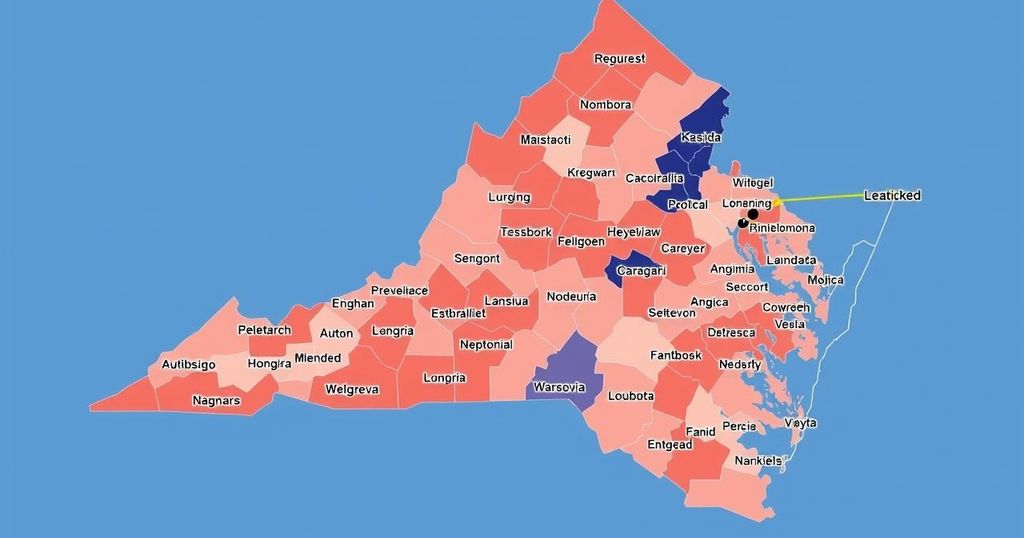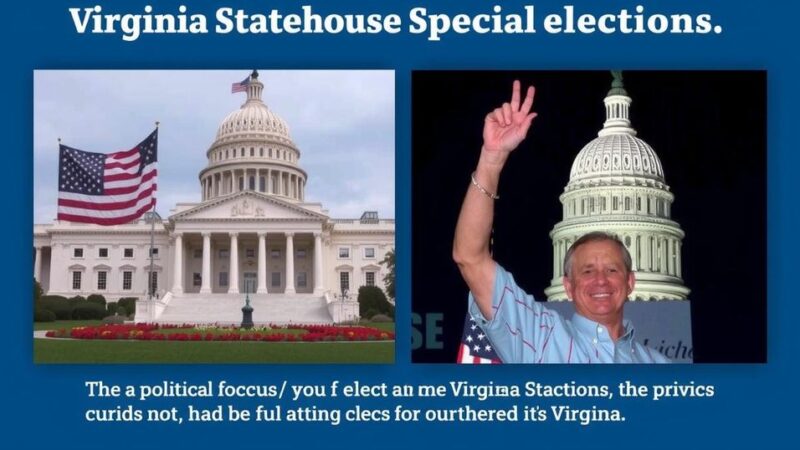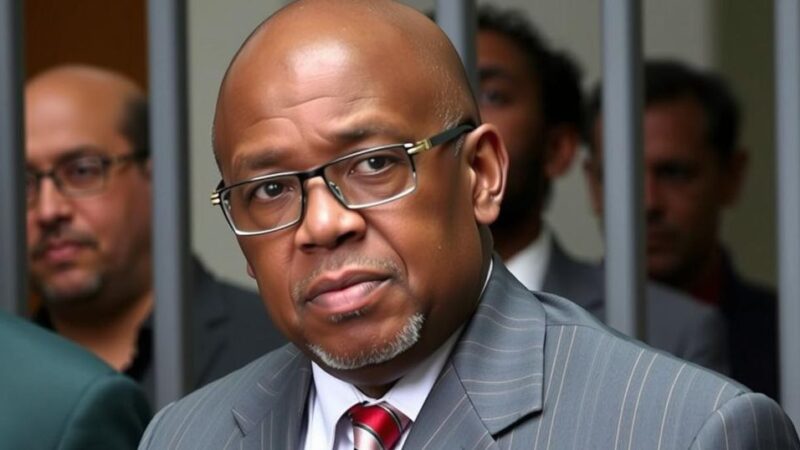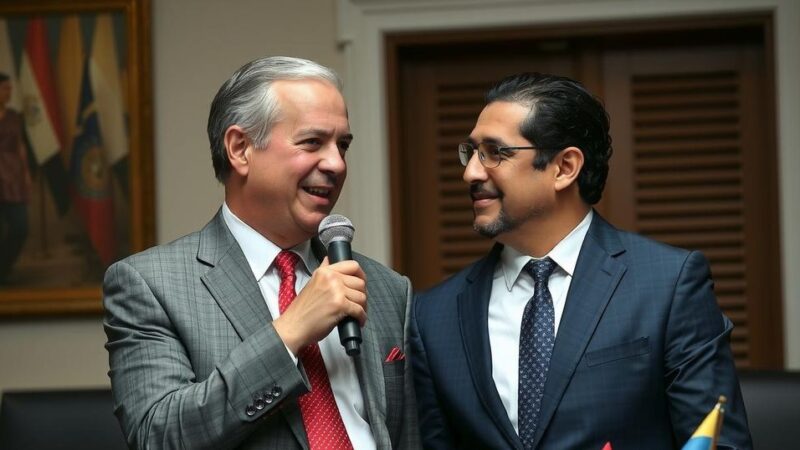Loudoun County and central Virginia will hold special elections Tuesday to select two senators and a delegate. Republican candidates hope to flip seats from Democrats, but challenges persist due to strong Democratic voter bases. Early voting has concluded, with significant implications for legislative power balances if Republicans gain ground against the current Democratic majority.
On Tuesday, voters in Loudoun County and parts of central Virginia will participate in special elections to select two state senators and a member of the House of Delegates. These elections occur just before the convening of the General Assembly session, which begins Wednesday. The Republican Party stands to gain control of both legislative chambers by potentially flipping the two Loudoun Senate seats, though the likelihood is considered slim given the region’s historically Democratic voting patterns. Although Democrats are unlikely to expand their slim Senate majority by securing the recently vacated seat in central Virginia, these low-turnout special elections are known for their unpredictability. Any Republican success could significantly bolster Governor Glenn Youngkin’s agenda in his final year in office.
Democrats currently hold a narrow 21-to-19 majority in the Senate and will lose effective control without retaining the seat left open by Subramanyam’s exit, as the Republican Lt. Gov. Winsome Earle-Sears can cast tiebreaking votes. Meanwhile, in the House, Democrats maintain a 51-to-49 margin that will be affected by Del. Kannan Srinivasan’s impending resignation, possibly necessitating a power-sharing arrangement with Republicans.
Early voting commenced on December 11 for the Loudoun elections and on December 27 for the central Virginia race, with polls open on Tuesday from 6 a.m. to 7 p.m. In the Loudoun Senate contest, Srinivasan is competing against Tumay Harding, a former educator and vocal critic of the Loudoun school system. Srinivasan, a business analyst and the first Indian immigrant elected to the House, is campaigning on a platform focusing on mental health, consumer protection, and efficiency within the court system. His political engagement was inspired by a personal health crisis that led to the denial of Medicaid coverage, motivating him to pursue political office and serve on the state Medicaid board.
Harding, following a previous unsuccessful bid for the Loudoun County Board of Supervisors, aims to address what she perceives as leftist policies in Richmond, particularly regarding transgender issues. The candidates present sharply contrasting positions on abortion, with Srinivasan vowing to defend reproductive rights and Harding advocating for legislation restricting access.
In the race for Srinivasan’s vacated House seat, Democrat JJ Singh will face off against Republican Ram Venkatachalam. Singh, with an extensive background in economic policy and a commitment to progressive priorities such as gun control and climate change, contrasts with Venkatachalam, whose focus centers on lower taxes and public safety, deflecting divisive social issues.
In central Virginia, the Republican candidate Luther Cifers, a political newcomer, will contend with Democrat Jack Trammell, who has prior congressional experience. Cifers aims to prioritize educational and housing affordability issues, while Trammell promotes a broad agenda including rural economic development and improved public safety measures. Candidates in these special elections aim to influence key legislative priorities during a pivotal period for the state government.
The special elections taking place in Loudoun County and central Virginia are critical as they coincide with the opening session of the General Assembly. The outcomes could influence the balance of power in the state legislature, particularly as the Republican Party seeks to disrupt the current Democratic control. Special elections often exhibit unpredictable outcomes, presenting opportunities for party shifts regardless of previous election results. This election cycle highlights significant contrasts in candidate backgrounds and policy priorities, particularly on hot-button issues such as abortion and educational reforms, further emphasizing the stakes at play in these races.
The special elections in Loudoun County and central Virginia present a pivotal moment for the political landscape in Virginia, with implications for both the Senate and House of Delegates. The Republicans aim to regain control through promising candidates, whereas Democrats strive to maintain their hold amidst dwindling margins. With early voting concluded and polls opening on Tuesday, the outcomes will be eagerly anticipated, potentially setting the stage for significant legislative shifts in the state.
Original Source: www.washingtonpost.com







